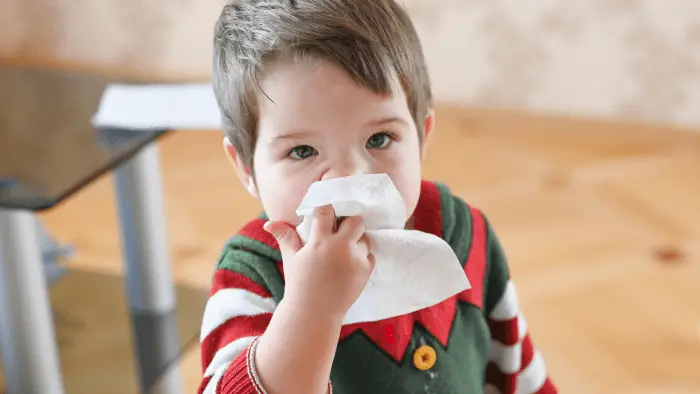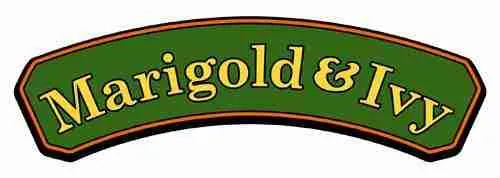Do you frequently clean the house, yet it still doesn’t feel clean enough? Maybe the problem is in the air! House air filters are supposed to be the tools for providing the family with clean air. But sometimes, it can be the root of low-quality air if left filthy. What happens, though, if the air filters remain uncleaned? Can dirty house air filters make you sick?
Yes, dirty house air filters can make a person sick. Homeowners often overlook cleaning the air filters around the house, which can be a source of health problems. According to a study, not having clean air due to dirty air filters can cause sickness, so take note and clean or replace your house filters regularly.
This post will tackle why and how air filters get dirty and some helpful tips to keep them clean.
How Do House Air Filters Get Dirty?
Air filters are supposed to get dirty over time. Your HVAC (heating, ventilation, and air conditioning system) is responsible for trapping dirt, dust, pollen, and other debris and cleaning the air.
But if your air filter gets dirty fast, you may have a problem with the type of filter you use, high temperatures inside and outside the house, the presence of contaminants in the air, leaking air ducts, or some other cause.
Is it Important to Have Clean House Air Filters?
Clean house air filters are a must for all to have quality and clean air circulation around the house. Even if we cannot see it, a lot of particles in the air can affect the people inside the house.
Some of these particles can even get you and your family sick, as you might catch different respiratory problems and allergies from a filthy filter. Not only that but ignoring the simple chore of cleaning and replacing the air filters can cost you more money if it affects your air conditioning or heating unit. So regular replacing or cleaning of the air filters is essential.
How Can Dirty House Air Filters Make You Sick?

Well, dirty air filters cannot directly make you sick, but poor air quality is produced from them. This can affect the family’s respiratory system and cause problems such as shortness of breath, sinus congestion, and coughing and sneezing.
Some of the significant effects are allergies, eye dryness, nose, throat, skin irritation, and hypersensitivity. A dirty filter can also cause headaches, dizziness, and nausea. These are only the effects of the short-time exposure. The effect is different when you and your family are exposed for an extended period, as this can lead to pneumonia and other lung diseases.
What are the Effects of Having Dirty House Air Filters?
Aside from the effects on the health of everyone living in the house, having a dirty air filter can also affect you differently. While your immune system can fight the poor quality of air that dirty air filters produce, you cannot avoid the additional cost and inefficiency they may cause.
As such, it’s essential to know the adverse effects of having dirty house filters, as it may motivate you to keep them clean.
Reduces the Efficiency of the HVAC system
A dirty air filter causes freezing up and reduces the efficiency of your HVAC system. Aside from producing low air quality, the clean air it makes can be trapped inside the machine, and the cool airflow can be restricted. This would also result in ice that can form on the coils.
The Proliferation of Bacteria, Germs, Mold, and Mildew
Dirty air filters can be the breeding ground for bacteria, germs, mold, and mildew. When ice forms inside the HVAC system, it becomes the perfect environment for breeding these microorganisms, which can ultimately lead to sickness.
Uneven House Temperatures Causes Uncomfortableness
Expect uneven cooling and temperature inside the house with dirty air filters. Dirty air filters will cause uneven distribution around the house. This results from the inefficient production of the HVAC system and might cause uncomfortableness to your family.
Reduces the Lifespan of the HVAC system
Dirty house air filters can also cause short cycling. Air conditions usually cycle on and off throughout the day. But because of inefficiency, the HVAC cycle system can cycle more often than normal. This may cause overheating or damage to the whole HVAC system.
Increases Electricity Bills
Your electricity bill would go up if air filters remain uncleaned. When your air filter is clogged and dirty, your HVAC system exerts more effort to produce cool or warm air around your house. Consequently, more work for the machine means higher electric consumption. So expect you’ll have to pay a higher bill for not cleaning your air filters.
How to Clean Dirty House Air Filters?
The best and safest way to clean your house air filters is to check the specific instructions by the manufacturer. But for regular cleaning of the house air filter, these general and easy steps can be followed:
- Turn off the HVAC system.
- Locate and remove the filter gently.
- Vacuum the air filter outside the house.
- If possible soak and wash the filter with a gentle soap or a mixture of vinegar and water.
- Let it dry and reload.
When is the Ideal Time to Replace House Air Filters?
Generally, the period to change or replace your house air filters depends on different factors like the location of your home, the number of people inside your home, pets, and dust level. But good practice is to replace the air filter every 90 days. But if there are pets and the household member count is high, you can replace it every 30 days.
How Do You Change House Air Filters?

Changing your house air filters is easy and can be done by yourself in just a few minutes. You need to follow these steps:
- Turn off the unit.
- Open the vent and remove the filter.
- Install the air filter properly.
- Close the vent and turn it on.
What are Common Types of House AC Filters?
There are various types of AC filters that you can select. But first, make sure that they are compatible with your unit. Look at the following for insights about what filter will work best in your home.
HEPA Filter
High-Efficiency Particulate Air (HEPA) filters are recommended for allergies and respiratory problems because they remove at least 99.97% of allergens and air pollutants.
UV Filter
UV filters use short-wave ultraviolet waves to kill germs and bacteria. Still, they are not that efficient in filtering dirt and dust.
Electrostatic Filter
An electrostatic filter is one of the most cost-effective types of filters. It uses small cotton and paper fibers that act as a magnet for collecting dust and other particles.
Washable Filter
For those concerned about the environment, the washable filter is the best option because of its reusable nature. It is more cost-effective but requires proper maintenance.
Media Filter
Media air filters provide a high MERV rating and generally have greater surface area than other types of filters. Plus, it only needs to be changed once or twice a year.
Spun Glass Filter
The Spun Glass Filter is one of the most common types of air filters. It is excellent for trapping particular debris and is cost-effective and disposable. But it is not that great for improving air quality.
Pleated Filter
A pleated filter is one of the best in trapping debris and filtering dust in the air. Because the pleats in the filter provide a larger surface area for the filter.
Conclusion
Can dirty house air filters make you sick? Yes, they can, and as mentioned earlier, there are other problems that can happen due to dirty air filters. Now that you know this, maybe it is the perfect time to clean or change your HVAC filters. It might cost you an additional penny, but more importantly, you and your family’s health is also at risk.
With many filter types, you can easily find the air filter that fits your needs. Make a habit of cleaning or replacing your filters regularly for a better and cleaner breath of air!
If you are interested in learning if not only your HVAC system is energy efficient but your whole house, check our post – Is My House Energy-Efficient?

